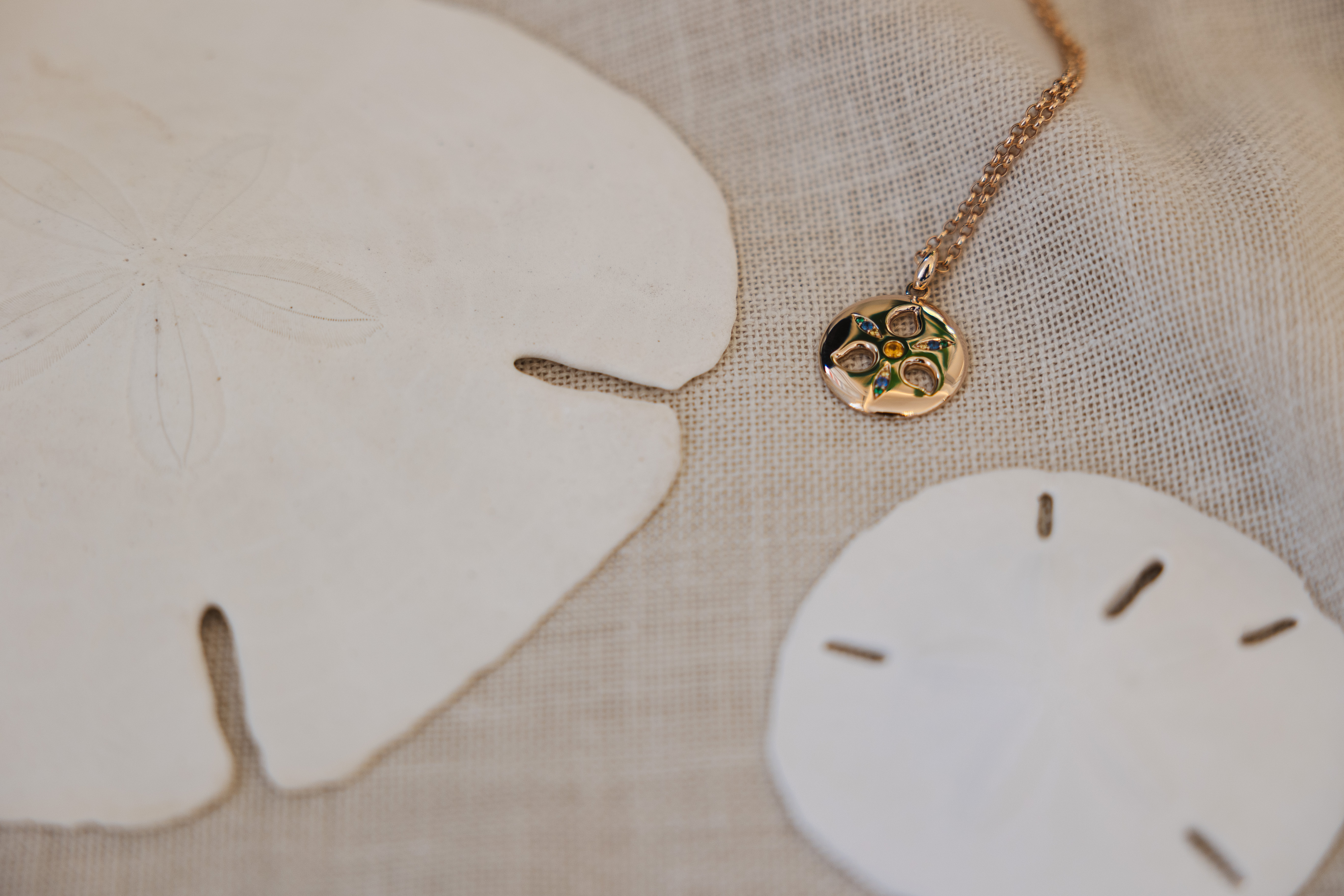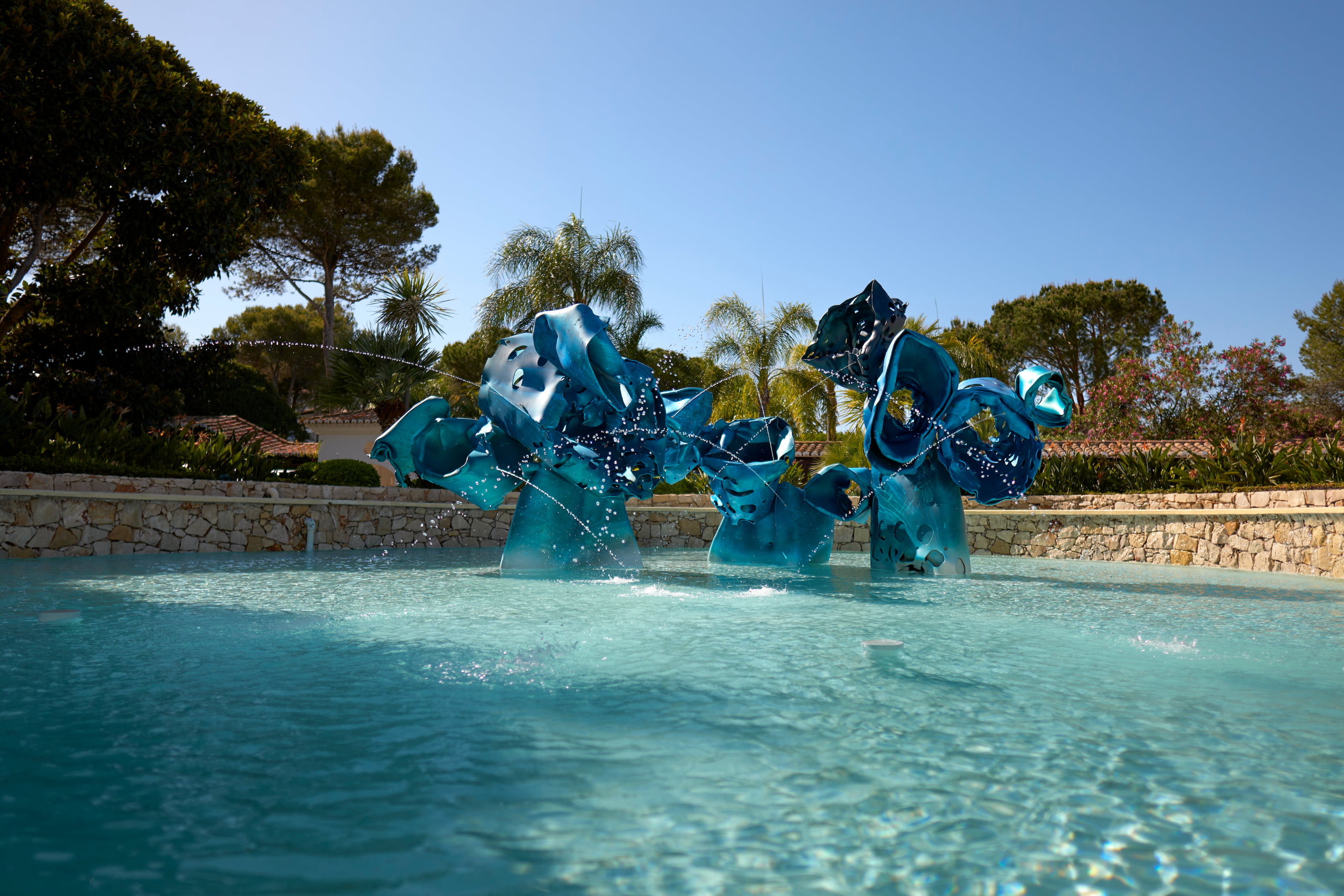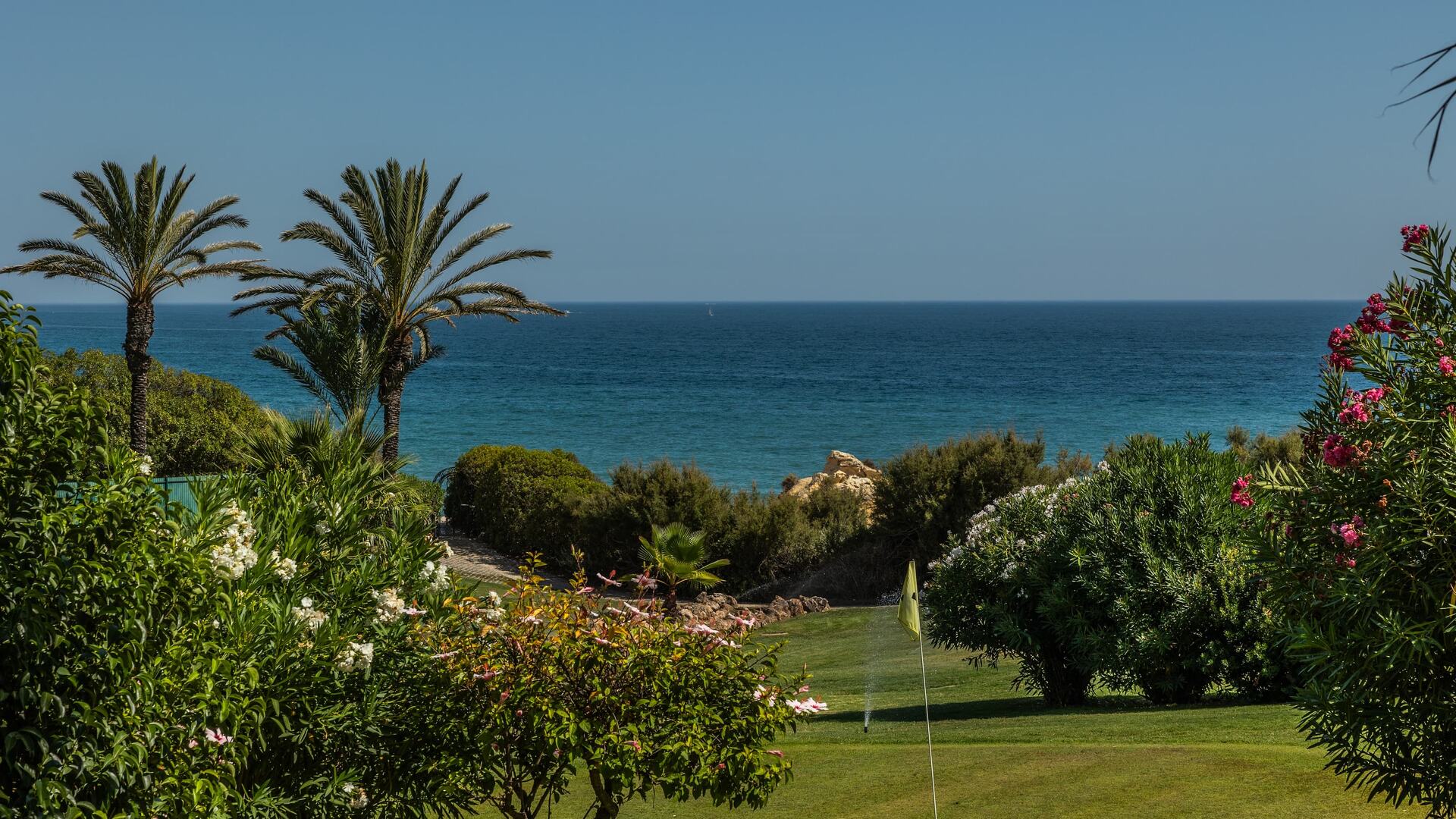
Sustainable Gardens
Sustainable Gardens
- Nature
Twenty years ago, practically no one had heard of sustainable landscaping in the Algarve. With golf as one of the main attractions, most resorts were more concerned with their carefully manicured greens than by the environmental impact of their creation. In recent years however, Vila Vita Parc has led luxury tourism towards a far more ecological approach to the region.
This has meant a change of philosophy, as well as culture. Sustainable gardens conform to the environment that surrounds them, requiring only naturally available inputs (water and fertiliser) and existing in harmony with the local ecosystem. This means that understanding and adapting to environmental factors becomes crucial in any long-term commitment to a landscape that will, eventually, be able to sustain itself.
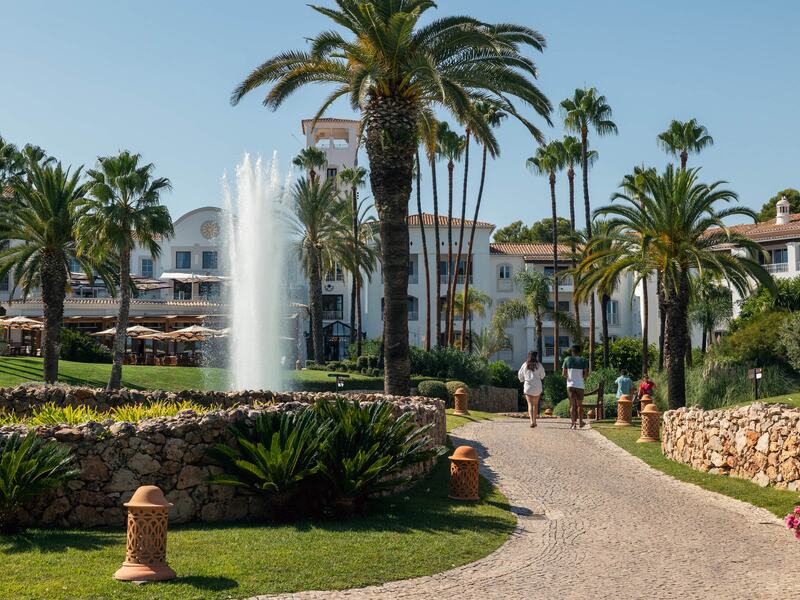
At Vila Vita Parc a passionate team led by Fatima Baiona and Inês Neves are striving to create beauty at the lowest possible cost upon the Algarve’s natural resources and local ecology - whilst also breaking new ground with some innovative new agricultural and technological methods.
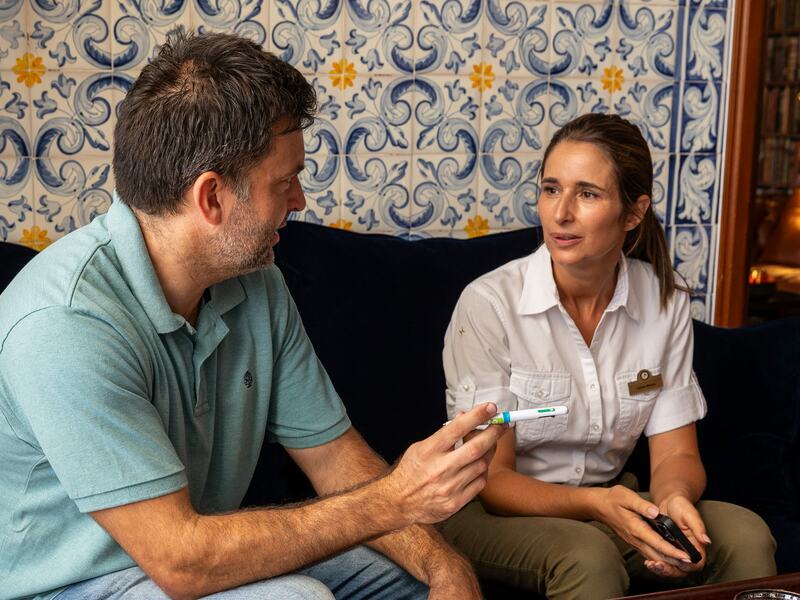
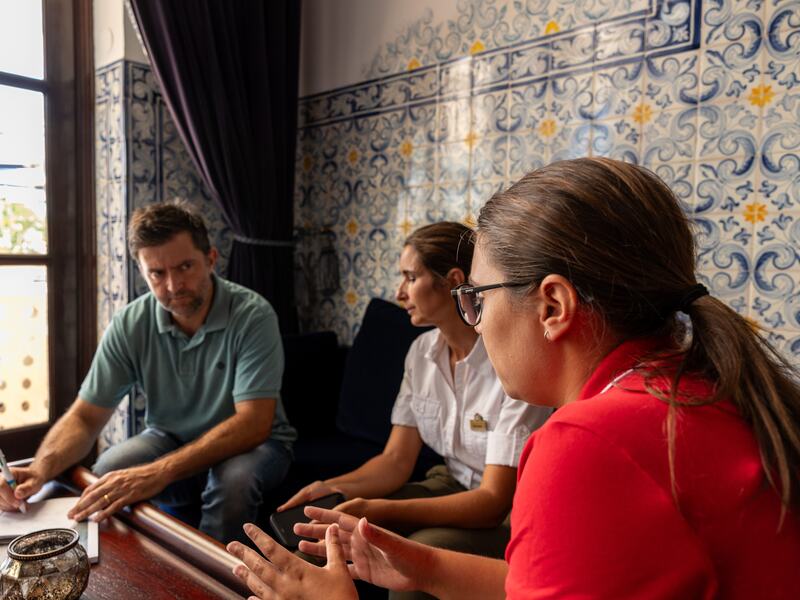
FB: Well, we work together as joint Heads of Gardening, and it’s our job to oversee the planting, landscaping, and maintenance of all the garden areas.
IN: That’s a big project, we cover around 22 hectares, that’s around the size of 22 football pitches, with over 67% of that being green spaces. So it keeps us busy!
FB: I have a background in agriculture, but I’ve worked here for over two years, while Inês recently joined us having previously worked in Quinta do Lago.
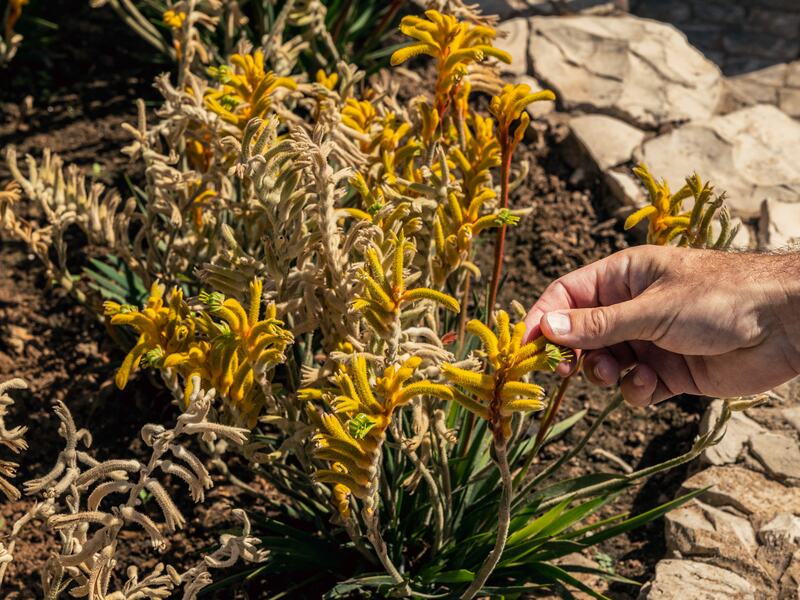
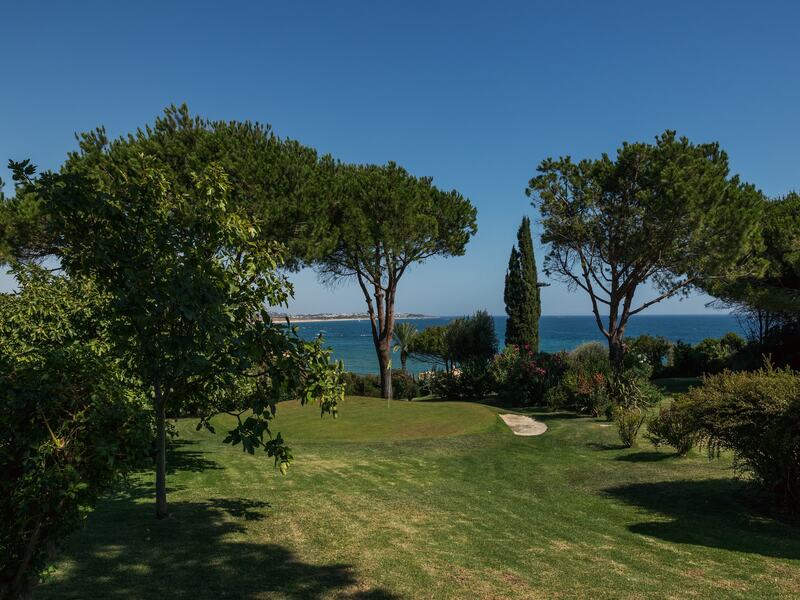
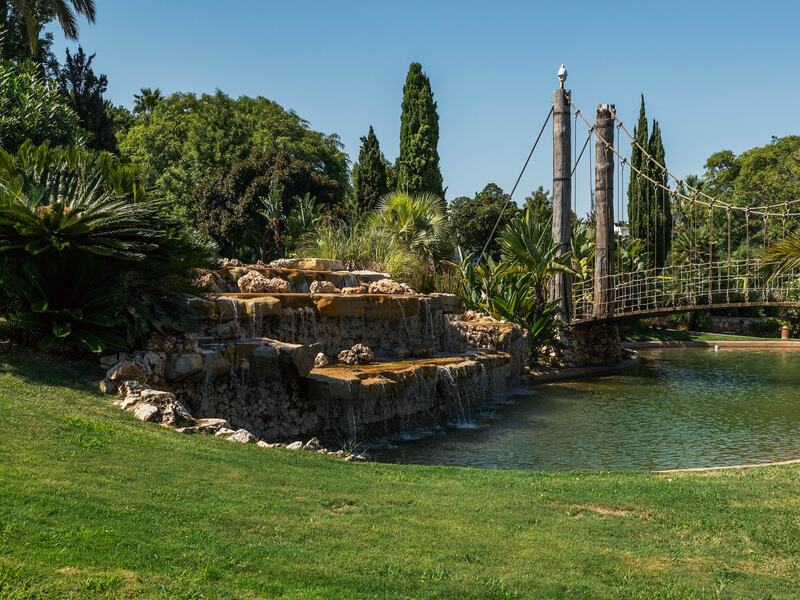

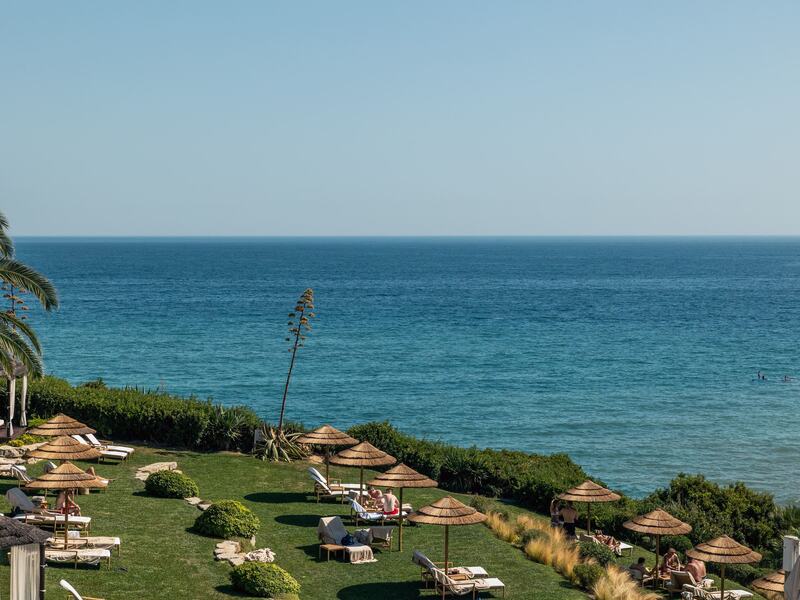
IN: Absolutely. The importance of sustainability in gardening is much more important, that’s something that we’ve really seen in the last ten years. We need to think ahead as well.
FB: And the last few years have really shown how important this is for the future, we have had less rain each year. So we need to think of ways to use less water, but also keep the gardens looking beautiful. With consistent, very high temperatures this is a challenge every day.
IN: This means looking carefully at the plants we choose, selecting ones that need less water, but also looking at how we water them. We need to make sure we understand what’s happening in the gardens all the time. We have a smart irrigation system that monitors the water we’re using with sensors.
FB: We can check any part of the system with our phones, to make sure the watering is working as it should. Knowing all this helps us choose the right system for each part of the garden, so for some areas we knew the answer was our new underground irrigation systems.
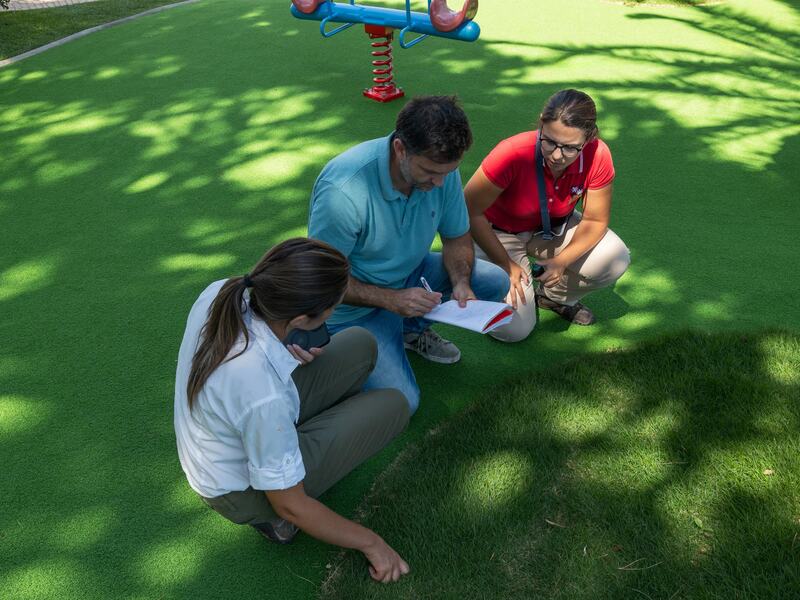
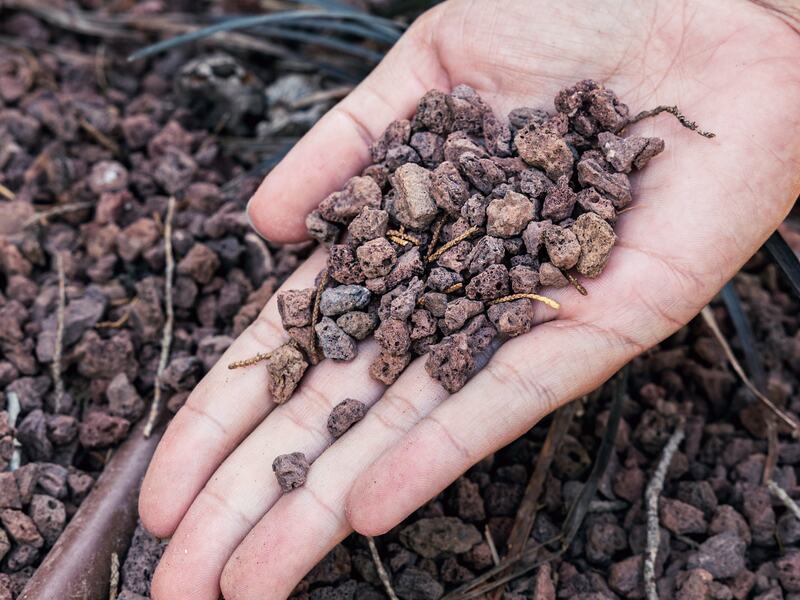

FB: Our goal is to think long-term, we are always learning from what we are doing. We have been trying some new plants from Australia at the front entrance, these are resistant to the heat and need less water.
IN: We’ve also been trying new grass varieties, including some Asian varieties that will not only need less water, but also less maintenance, growing more naturally. We have planted out trial areas in different parts of the gardens, and so far they’ve been a great success.
FB: We also need to make sure we’re doing this in harmony with the local plants and varieties - and making sure the gardens stay beautiful. So we spread out the plants and use more traditional succulents to create colour and texture.
IN: We use organic pesticides and fertilisers, but we prefer to grow strong, healthy plants first. Like people, if the plants are healthy first, they can survive a lot of things without our help. We plan healthy diet for them, over winter and summer, good nutrition and good watering.
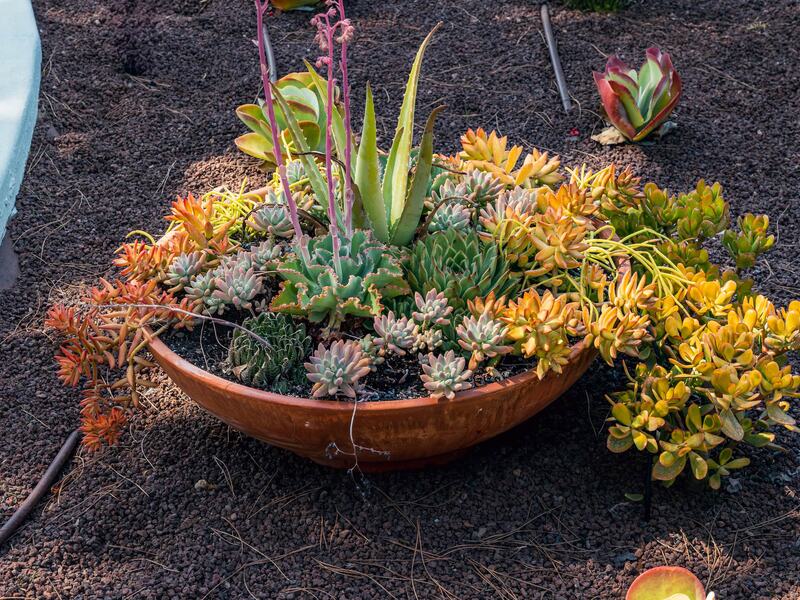
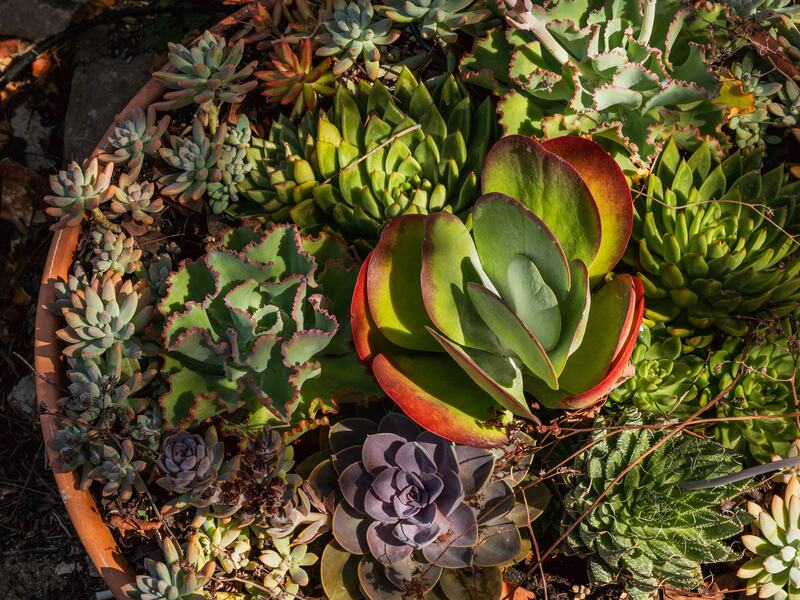
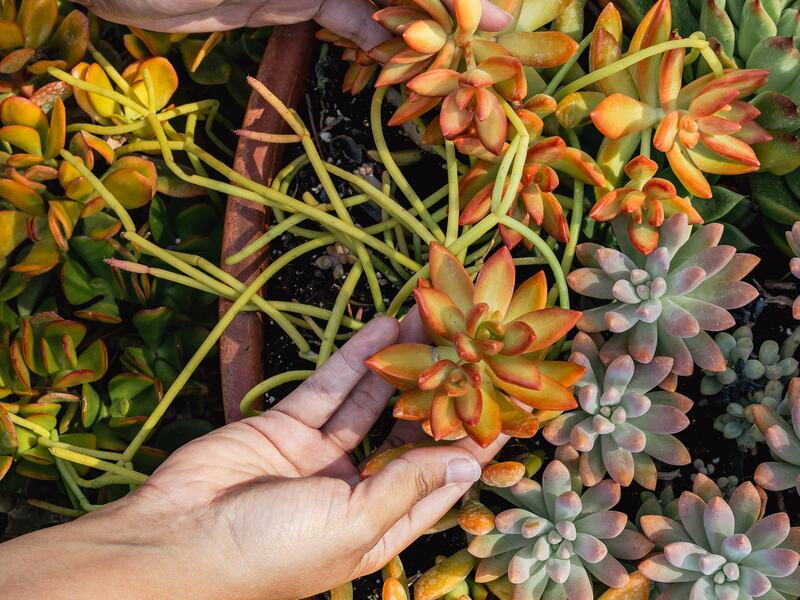
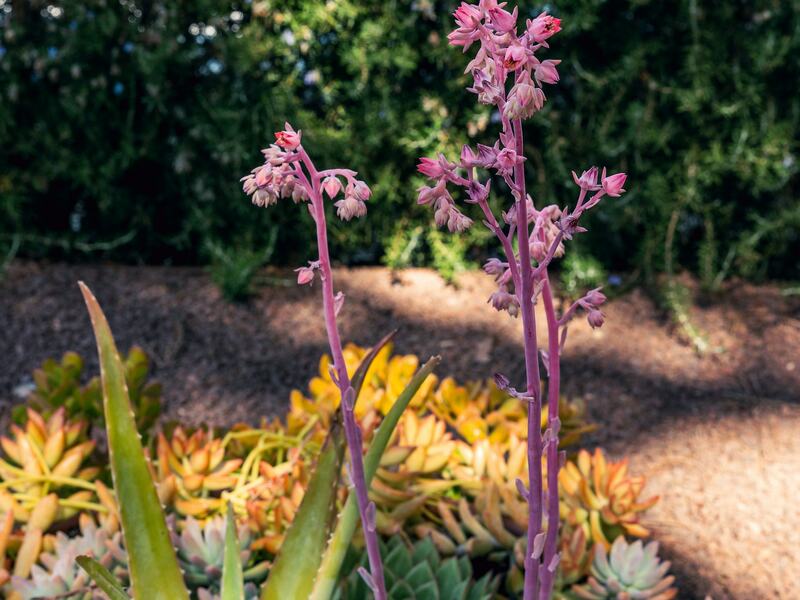
FB: We have the first salinisation project in the Algarve, it uses osmosis to separate the salt from seawater and uses it for the pools and garden irrigation. The water then returns back into the sea.
IN: This is a really good case study for the future of the Algarve, some local councils are already looking into these systems to help with long-term water shortage. We have an important role to play, during the pandemic some of the golf courses in Quinta do Lago started to replant using more sustainable grasses. Doing things like this and showing how we can change, luxury tourism helps everyone to be more sustainable.

FB: Long-term we’ve been working on our nursery greenhouse, which we want to be able become self-sufficient. As well as a bio-garden that will provide our restaurants with herbs, but these need time. They are like micro-climates and we need to nurture the soil, it takes time to grow our dreams!
IN: We’ve just finished our mini-golf course, where we’ve used different trees, plants, and stone areas. It’s been great to see these new areas develop as a new, balanced eco-system, we see ladybirds have moved in, which mean we don’t need to look at pesticides. It’s all in harmony.
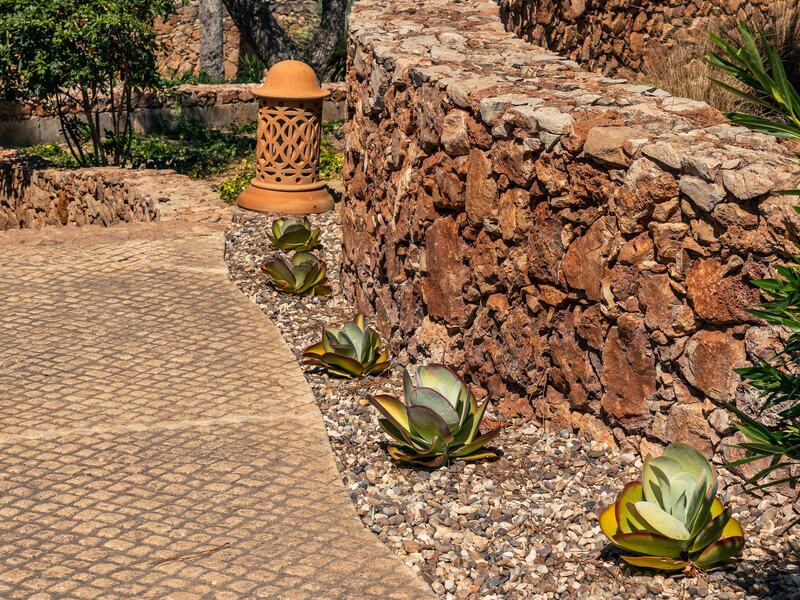
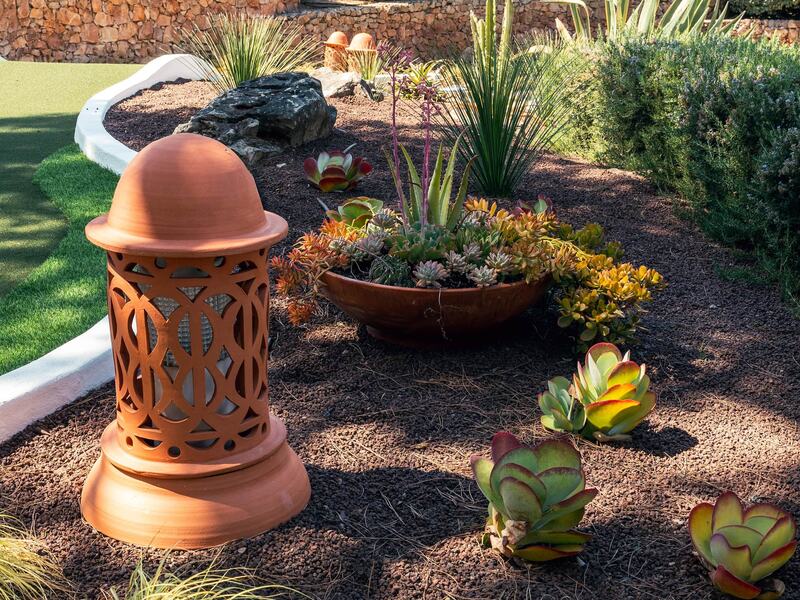
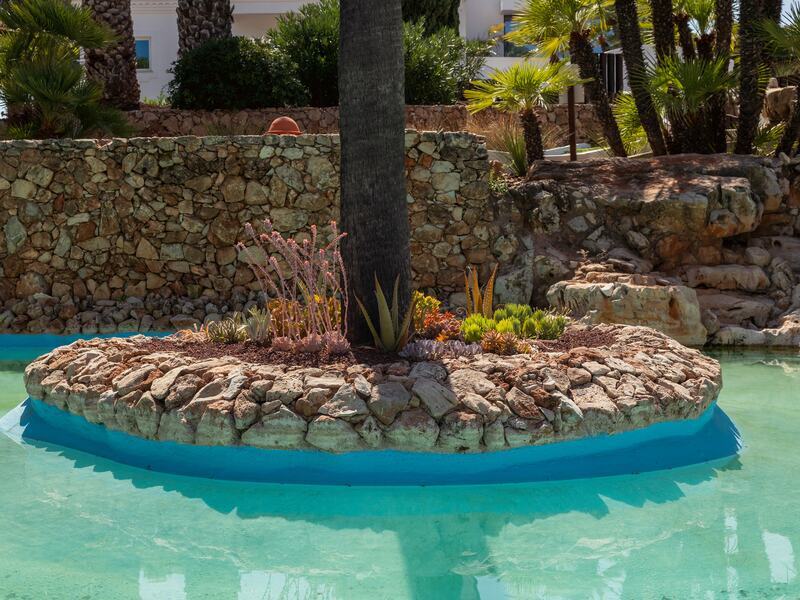

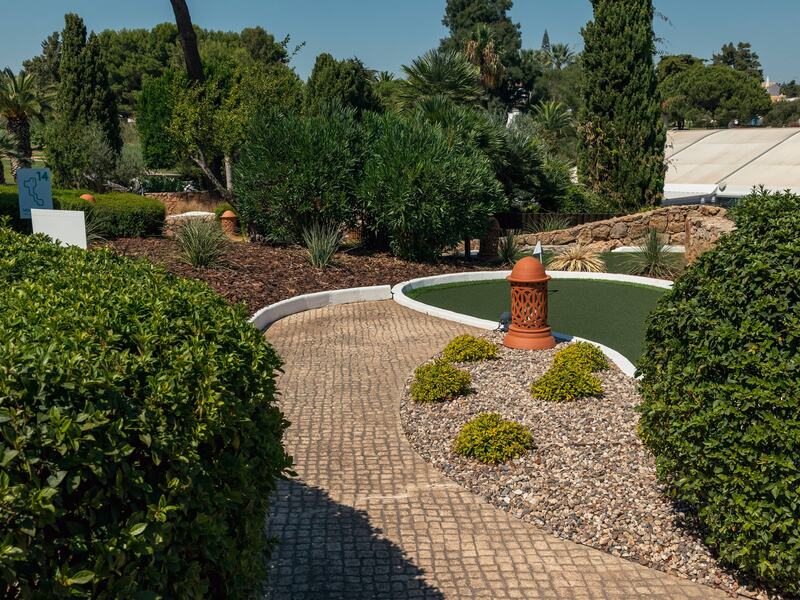

FB: We walk the gardens every day as part of our work, so we see the birds nesting and the bees flying, we see the gardens thriving even in the heat. It’s very rewarding. It’s how we know everything is being done the right way, that we are growing the right way.
Explore our stories
Have you enjoyed what you've just read? Here are a few more stories for you to discover.
